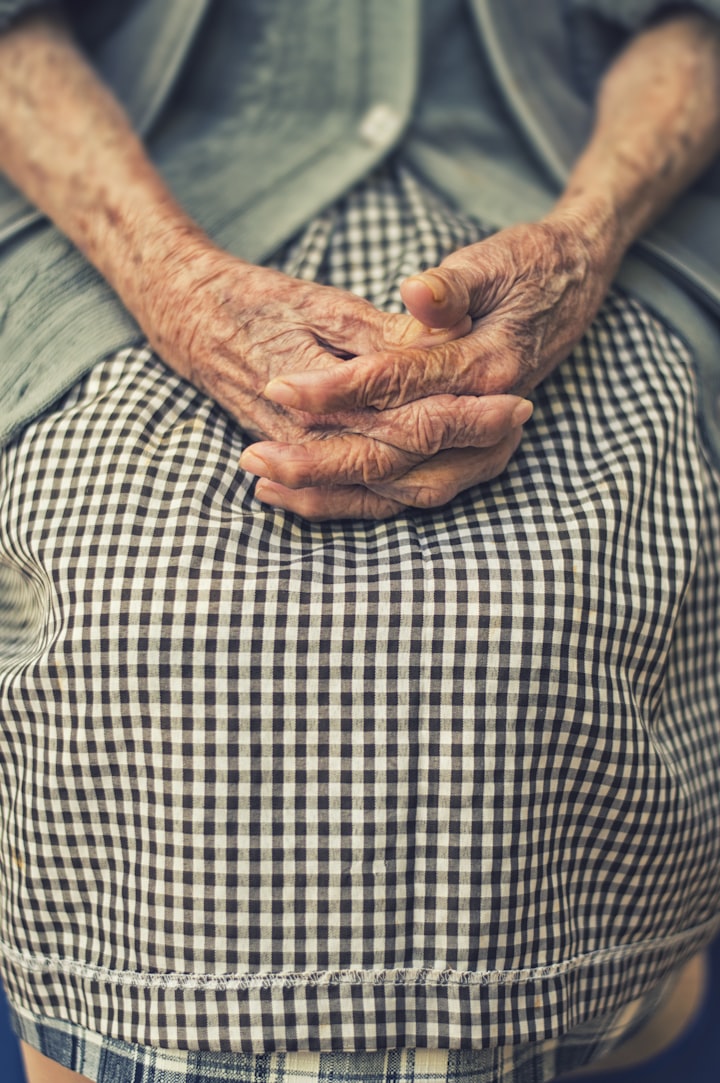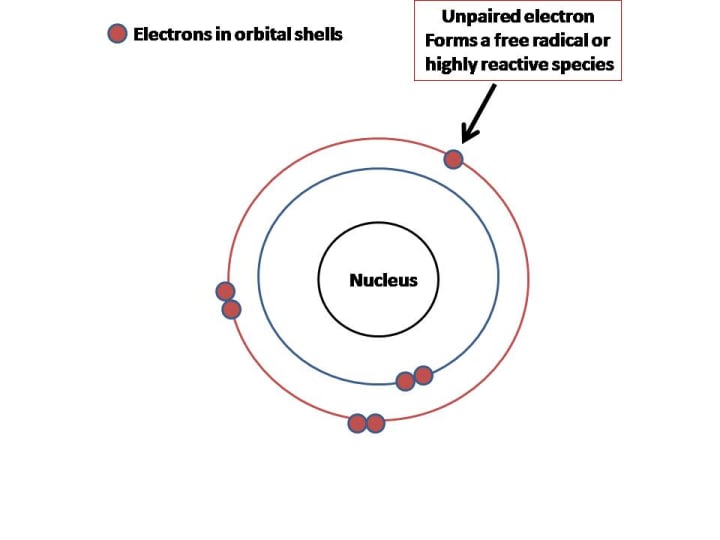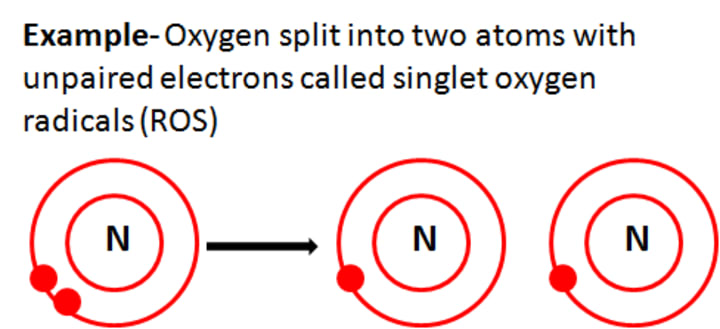Can Ageing Be Delayed
Yes, if the oxidative stress that accelerates ageing mediated degeneration is kept in check.

Man is mortal
yet his quest for a long life
remains immortal
— Chirag
We all age. Whether we like it or not, we will chronologically age by every passing second. Because, time doesn’t freeze, but runs. We can’t stop it or even slow it down a bit.
However, time can only determine the man’s chronological age, not his biological age.
Chronological age vs Biological age
Chronological age is defined as the age of an individual, which can be measured from the time of birth to the given date or the time of death, in days, months, and years.
A simple detail like the date of birth is enough to calculate the chronological age of an individual.
On the other hand, biological or functional age of man cannot be determined by the mere number, but his physical, mental, and social well-being. It represents the pace at which a man ages.
Interestingly, no man biologically ages at the same pace.
For an instance, in my family, one of my uncles (seventy-three-year-old) suffered Parkinson’s disease (PD), while my ninety-one-year-old grandfather (late) was physically and mentally stable, in fact with an astonishing memory. By physical stability, I didn’t mean he could win a marathon or become a boxing champion. What I meant was he could take care of himself, without anyone’s help — Independent. For an elderly, living an independent life is in fact a great achievement. I haven’t even seen him stagger or tremor. At the contrary, my eighty-seven-year-old grandmother suffers Alzheimer’s disease (AD). PD and AD are the prevalent neuro-degenerative diseases that are linked to ageing.
This poses some valid questions— Why some brains succumb to age linked diseases sooner than the others?
Why do some elderly show ageing mediated functional deficits sooner than the others?
Does that indicate some age faster than the others? This question is addressed in a scientific study that was conducted on 954 men of the same chronological age (thirty-eight years). It reported that some people aged (biologically) at an accelerated pace than others, showing a significant decline in motor and cognitive functions, and also looked older.
It makes it clear that the chronological age and biological age are two different entities.
The good news is that one can shorten the biological age, at least to some extent.
Shorter the biological age,
Healthier the man.
To achieve this goal, one must understand what accelerates the ageing process?
Ageing is a physiological process, characterized by a slow and gradual decline in the functioning of an individual, physical frailty, cognitive impairments, and an enhanced susceptibility to disease and death.
There is no single key to unlock the complex, multi-factorial phenomenon of ageing. Many theories have been proposed, based on the outcome of experimental studies on biological ageing in rodents, nonhuman primates, and humans.
Nevertheless, the foremost theory that stands out to explain the possible mechanism underlying the ageing mediated structural alterations and functional decline is *Free radical theory of ageing*.
You name any deadly disease, this infamous term ‘free radical’ is linked to it.
The free radical induced oxidative stress is the greatest enemy of ageing man.
You can’t defeat your enemies
until you know who they are
— Anthony Horowitz
What is a free radical?

In chemistry, a free radical or reactive species is defined as an unstable, highly reactive molecule or atom or ion with one or more unpaired valence electrons in its outer orbital shell.
To attain its stability (to become paired), it may readily react with and steal away electron or electrons from neighboring molecules as crucial as proteins, lipids, and even DNA, disturbing the harmony of the internal environment and causing chaos\damages beyond repair.
Well! If you are a hater of chemistry like me, here is an alternate explanation:
A single, unstable, psychotic teenager attends the couple’s party, stealing the neighbor’s girlfriend, beating the shit out of him, and leaving him to die. LOL
Free radicals are categorized into few types, but the most common is the reactive oxygen species (ROS), where oxygen is involved.
For example — In the below illustration, the stable oxygen molecule that contained a pair of electrons is split into two atoms, each carrying an unpaired electron, now called as singlet oxygen radical or ROS.

Electrons love to be in pairs so these highly reactive radicals seek out for their pairs by hunting or scavenging the cells and their components including the most vital lipids and proteins that form the cell membrane and structural architecture of a cell, and also doesn’t spare even the DNA, the blueprint of the cell.
The free radicals may attack the cell membrane, causing cell leakage, triggering cascade of reactions that ultimately lead to cell death.
Imagine the door of your home is damaged that anybody can sneak in and out without much effort.
These free radicals if left unattended can scavenge the whole body by a chain of reactions.
One radical when attacks the other stable molecule by removing its electron, the victim losing an electron also becomes unstable or a radical. The chain of reactions continues… Like the Dracula turns all normal people into vampires by just biting, as in Count Dracula novel.
Anti-oxidants — The savior
All a free radical needs is one or more electron to remain stable. Feed it before it preys on the vital organelles to satisfy its needs. It’s as simple as that. This is exactly what our body’s natural free radical scavengers called antioxidants do. They make the free radicals stable without getting destabilized. Fortunately, the anti-oxidant defense system of our body keeps the free radicals in check.
Antioxidant is a molecule that donates an electron to a free radical without making itself unstable. This causes the free radical to stabilize and also become less reactive.
Antioxidants (AO) are produced within our body, called endogenous anti-oxidants, and those which are absorbed from food we ingest, called exogenous anti-oxidants.
Endogenous AO include glutathione, superoxide dismutase, glutathione peroxidase, and catalase.
Exogenous AO include Vitamins C, E, carotenoids, polyphenols, and plant derived components or extracts.
Oxidative stress — The Robust Enemy
Damn! The worst nightmare for an ageing man is the decline in the levels of anti-oxidants that may result in an uncontrollable increase in the generation of ROS. In fact, studies report that anti-oxidants decline with age in humans.
Oxidative stress (OS) is defined as an imbalance between the generation of ROS and anti-oxidants.
Oxidative stress — More enemies vs less soldiers — Danger signal on
Free radical theory of ageing
Now it’s time to answer the most difficult question, ‘Why an organism ages?’
As I have mentioned earlier, ‘Free radical theory of ageing’ stands strong among all hypotheses, for almost seven decades.
This theory first postulated by Harman states that the organisms age because they accumulate oxidative damage caused by free radicals. There are hundreds of works and publications that support this popular theory of ageing. Increasing evidence from the studies on animal models like rodents, nematodes, nonhuman primates, humans etc suggest that ROS and oxidative damage increase exponentially with age, and further states that retarding the oxidative stress mediated damage may extend the health-span of ageing organisms or in other terms delay the physiological ageing process.
It can be hypothesized that stronger the anti-oxidant defense system, weaker becomes the enemies\OS of ageing man. This partly explains, why some people biologically age faster than the others, perhaps due to their weak anti-oxidant defense mechanisms.
Can ageing be delayed?
Yes. To some extent, the health-span of an individual can be extended by delaying the ageing induced degenerative changes.
How?
Boost your anti-oxidant defenses. Since ageing linked accumulation of oxidative damage is identified as the primary culprit, the anti-oxidant defenses may help defeat the oxidative stress and save the cells from degeneration or loss, and in turn may prolong the health-span.

How to boost anti-oxidant defenses?
• Exercise — A study* reports that the regular exercise may alleviate the negative effects caused by free radicals and reduce the risk of age related diseases.
• Vitamin C — Citrus fruits, strawberries, thyme, parsley, bell-peppers, guavas, mustard spinach, kiwis, Brussel sprouts, persimmons, lychees, and papayas. A study reports that Vit C enhances the levels of glutathione.
• Sulfur rich diet — Sea food, beef, poultry, and allium vegetables* like onion, garlic, and shallots, cruciferous vegetables like broccoli* sprouts, Brussel sprouts*, cauliflower, and mustard greens help to boost the levels of glutathione.
• Avacados, okra, and spinach* are naturally rich in glutathione.
• Curcumin*, the polyphenol compound of turmeric helps enhance the superoxide dismutase activity.
• Whey protein* enhances the activity of glutathione.
• Green tea* is reported to possess anti-oxidant effects.
• Good night’s sleep — The last and the most important among all. A study* reports that the sleep deprivation reduces the levels of anti-oxidants and a good night’s sleep enhances the levels.
*The hyperlink leads to the original article.

As much it’s important to boost the anti-oxidant defenses, it’s equally important to prevent the generation of ROS.
It’s recommended to reduce the consumption of certain foods that may induce the generation of free radicals or act as free radicals.
Oils and fats when heated up as in deep frying may become oxidized, creating ROS. Unsaturated fats are more likely to generate ROS than the saturated fats. When cooking fats are again and again reheated and reused, they may become more oxidized and enhance the generation of ROS. This study demonstrates the dangerous effects of consumption of re-heated oil.
Preservatives that are used in processed meats like sausages, ham, hot-dogs, corned beef etc may also generate ROS. Since processed meats contain fats, when heated up can also become oxidized. The American Cancer Institute advises to avoid the grilling of canned or processed meats, as it requires high heat.
High alcohol consumption increases the generation of free radicals. Therefore, limiting the intake may prevent the oxidative stress.
Live healthily
To die gracefully
— Chirag
About the Creator
Chirag PhD
A creative neuro-scientist, fascinated by the world of fiction and ageing neuroscience.





Comments
There are no comments for this story
Be the first to respond and start the conversation.